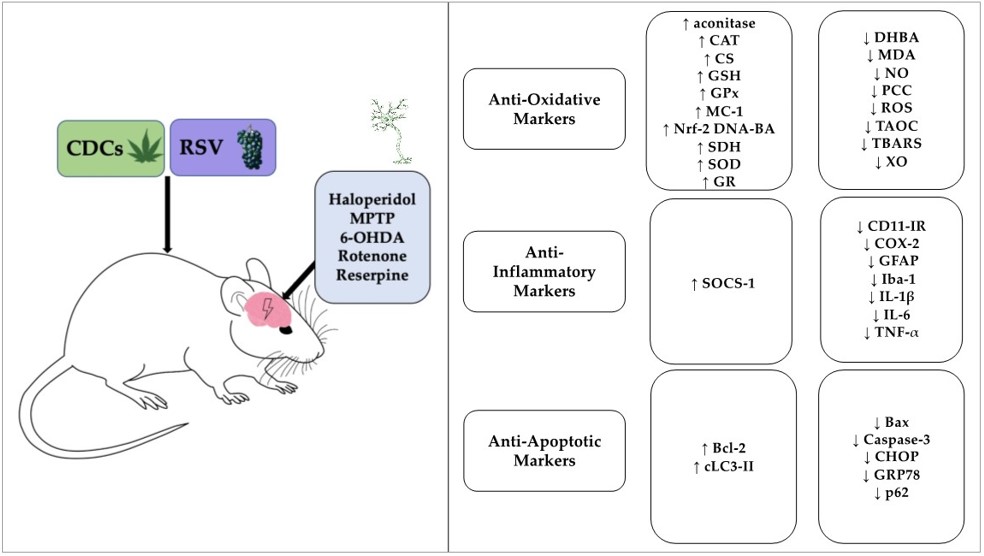Currently, there are no pharmacological treatments able to reverse nigral degeneration in Parkinson’s disease (PD), hence the unmet need for the provision of neuroprotective agents. Cannabis-derived phytocannabinoids (CDCs) and resveratrol (RSV) may be useful neuroprotective agents for PD due to their anti-oxidative and anti-inflammatory properties. To evaluate this, we undertook a systematic review of the scientific literature to assess the neuroprotective effects of CDCs and RSV treatments in pre-clinical in vivo animal models of PD. The literature databases MEDLINE, EMBASE, PsychINFO, PubMed and Web of Science core collection were systematically searched to cover relevant studies. A total of 1034 publications were analyzed, of which 18 met the eligibility criteria for this review. Collectively, the majority of neurotoxin-induced PD rodent studies demonstrated that treatment with CDCs or RSV produced a significant improvement in motor function and mitigated the loss of dopaminergic neurons. Biochemical analysis of rodent brain tissue suggested that neuroprotection was mediated by anti-oxidative, anti-inflammatory, and anti-apoptotic mechanisms. This review highlights the neuroprotective potential of CDCs and RSV for in vivo models of PD, and therefore suggests their potential translation to human clinical trials to either ameliorate PD progression and/or be implemented as a prophylactic means to reduce the risk of development of PD.

